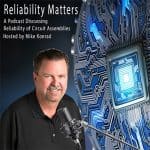
Supportability with Lucas Marino
Supportability entails matching the design and logistics requirements of an asset to its operational needs. When buying equipment, decision-makers are usually quick to base their decision on the upfront capital investment without weighing in the effects of continuous operational expenses. Other foregone considerations in valuing an asset can touch on areas like supply chain requirements, equipment obsolescence, personnel training, configuration management and environmental impacts. Lucas joins us on this episode to help create an understanding of supportability.
Some of the important insights include:
- Differentiating supportability and reliability
- Reasons for implementing supportability
- Challenges and opportunities for supportability










 Ask a question or send along a comment.
Please login to view and use the contact form.
Ask a question or send along a comment.
Please login to view and use the contact form.